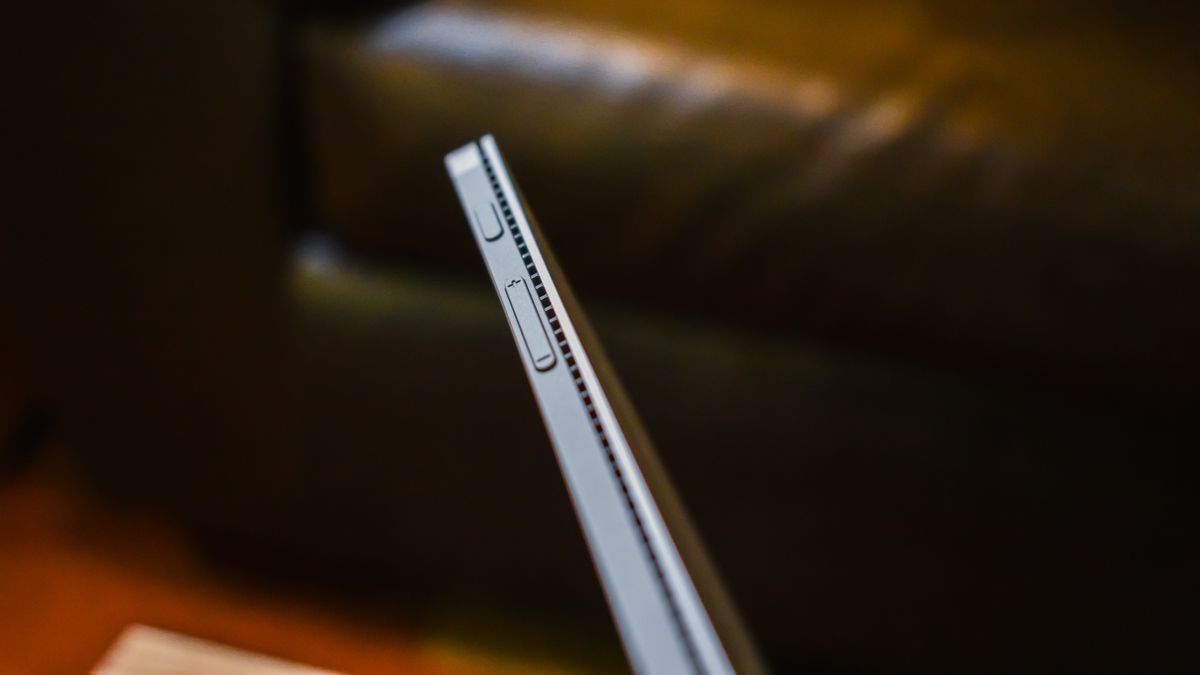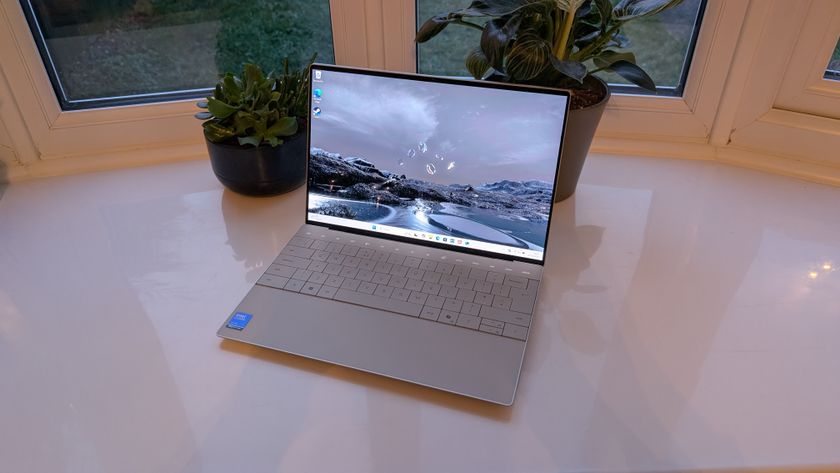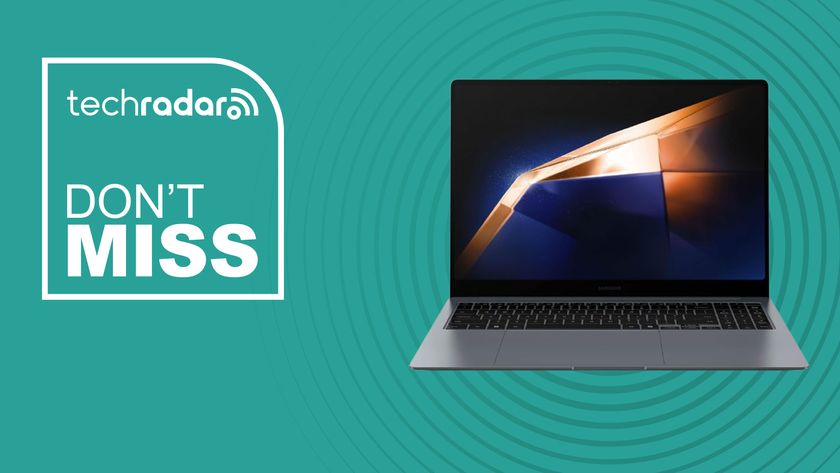Microsoft’s next Surface device could come with some mind-blowing upgrades
Rumored Surface Laptop Studio might have a fancy tilting screen and haptic pen

A new flagship Surface laptop could be coming later this year which might replace the Surface Book range entirely, and involves a major shift in design philosophy.
This is according to a respected source for all things Microsoft, Zac Bowden at Windows Central, who reckons that while the new portable is expected to supplant the Surface Book – to the extent that he’s given it the placeholder name of the Surface Book 4 – it may actually arrive under the Surface Laptop brand, perhaps as the Surface Laptop Studio or Surface Laptop Pro.
- Best laptops for photographers in 2021
- Best video editing laptops of 2021
- Here are the best Windows laptops
Bowden’s theory is that Microsoft will drop the idea of the detachable 2-in-1 as seen with the Surface Book – where the display can be separated entirely – and instead produce a laptop which offers a different trick with the screen, allowing it to extend and be rotated to different angles.
Rather than the display coming off, it’ll be on an innovative stand mechanism that allows it to be pulled towards the user, and rotated to lie almost flat, for writing or drawing if needed – mirroring the Surface Studio in that respect. Hence the possible name of the Surface Laptop Studio, which would tie in with all this.
Note that this is speculation based on the fact that Microsoft is apparently doing something new in terms of ditching the detachable model, and the sighting of the aforementioned purported nifty hinge design in a recently unearthed patent. So Bowden is putting two and two together here, given that patent and what his sources are saying.
An additional aside to this equation is that Microsoft also has a patent kicking about (from some time back) for a Surface Pen with haptic feedback. Bowden further theorizes that as Windows 11, which will be the new laptop’s OS, supports haptic feedback for pens, it’s likely that some kind of smart pen with support for haptics will be bundled with the Surface Book 4, or whatever the portable ends up being called.
Refreshing change
Other tentative specs from Bowden’s sources include the laptop having a 14-inch screen that will employ a dynamic refresh rate. This means that it might be a 120Hz panel, say, by default, but will have the ability to drop to 60Hz when nothing’s happening on-screen, saving some battery juice.
Get daily insight, inspiration and deals in your inbox
Sign up for breaking news, reviews, opinion, top tech deals, and more.
Nvidia RTX graphics are predicted to be on board, too, plus a capacious trackpad, and a more powerful processor would pretty much be a given. That’s not just because it’s a new machine that needs to sound impressive, but the shift away from a detachable 2-in-1 to a more traditional laptop form-factor (albeit with a fancy hinge) would in theory give Microsoft more room to play with for the CPU (as it would go in the main body of the portable, and wouldn’t need to be crammed into the display portion to allow the tablet to function when detached).
Bowden’s guess for the release date of this potentially incoming Surface is that it could follow on shortly from a launch at Microsoft’s regular hardware event in the fall. That press event could be in October, with maybe a late October (or perhaps November) on-sale date for the US, and other regions to get the device down the line as usually happens (sometimes with a waiting time of months – and that’s been known to happen without a global chip shortage).
Analysis: Something wickedly pricey this way comes?
There are a lot of interesting and exciting sounding features and specs floated here for this potential device. It all seems to fit nicely together with the idea of a laptop that takes distinct cues from the Surface Studio, and it could be a fabulous portable for creatives – given the tilting screen, and the possibility of a haptic pen. Those two elements would provide the ability to draw on a flat surface with a stylus that gives the feeling of a much more tactile and natural experience than existing pens.
The concern is that this fancy new tech, including a high-quality display which can vary its refresh rate, and particularly the intricate hinge mechanism – which will have to be manufactured to guard against potentially being knocked or damaged – could mean we’re looking at a pricey portable. And remember, the Surface Book is hardly cheap as it is, with higher-end specs getting eye-wateringly expensive. The pricing, then, has to be a worry if all the above pans out, and we also get a much peppier CPU and RTX GPU options into the bargain.
Bowden seems to think the new machine could debut at the same starting price point as the current Surface Book 3 ($1,599 / £1,599 / AU$2,649), but that seems optimistic to us.
We still remain unconvinced about the fancy hinge/stand mechanism and tilting screen, too. That’s the biggest leap with the speculation here, and as we’ve already mentioned, the possibility that it creates a design weak point in terms of stuff that can break and go wrong, seems like something of a minefield. Hinge-gate, anyone?
- Check out our guide on how to build a PC
Darren is a freelancer writing news and features for TechRadar (and occasionally T3) across a broad range of computing topics including CPUs, GPUs, various other hardware, VPNs, antivirus and more. He has written about tech for the best part of three decades, and writes books in his spare time (his debut novel - 'I Know What You Did Last Supper' - was published by Hachette UK in 2013).
Most Popular








